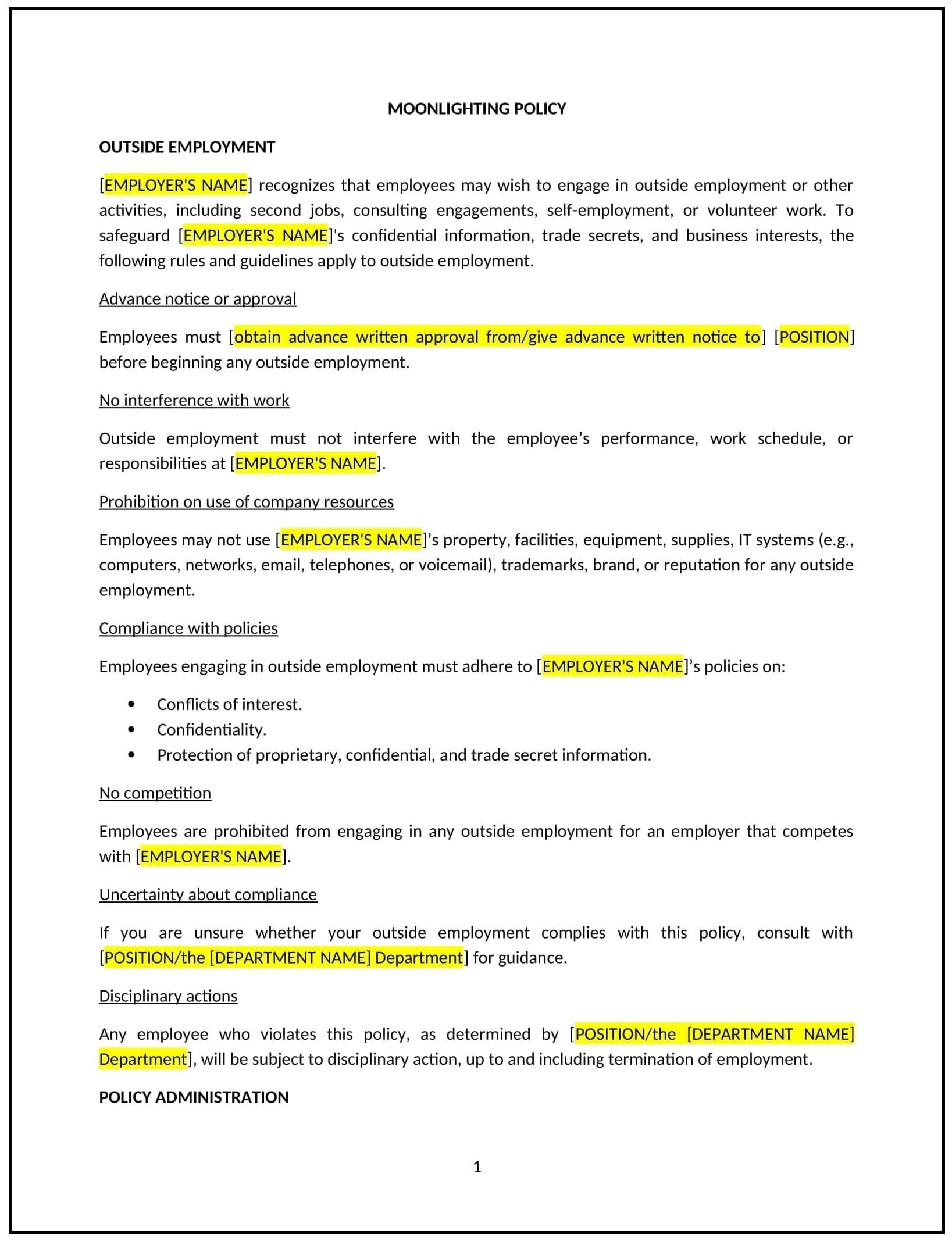Got contracts to review? While you're here for policies, let Cobrief make contract review effortless—start your free review now.

Customize this template for free
Moonlighting policy (Rhode Island)
This moonlighting policy is designed to help Rhode Island businesses establish guidelines for employees who work secondary jobs outside of their primary employment. It outlines procedures for disclosure, approval, and potential conflicts of interest.
By adopting this policy, businesses can protect their interests, maintain productivity, and address potential conflicts effectively.
How to use this moonlighting policy (Rhode Island)
- Define scope: Clarify what constitutes moonlighting and the types of secondary jobs covered.
- Establish disclosure requirements: Outline steps for employees to disclose secondary employment, including required documentation.
- Address conflicts of interest: Provide guidelines for identifying and resolving potential conflicts between primary and secondary jobs.
- Set approval process: Specify who must approve secondary employment and the criteria for approval.
- Communicate expectations: Share the policy with employees and include it in the employee handbook.
- Train managers: Educate supervisors on handling moonlighting requests and addressing conflicts of interest.
- Review and update: Assess the policy annually to ensure it aligns with evolving business needs and legal standards.
Benefits of using this moonlighting policy (Rhode Island)
This policy offers several advantages for Rhode Island businesses:
- Protects business interests: Reduces the risk of conflicts of interest, competition, or misuse of company resources.
- Maintains productivity: Ensures employees remain focused on their primary job responsibilities.
- Enhances transparency: Encourages open communication about secondary employment.
- Supports compliance: Aligns with Rhode Island labor laws and best practices for managing moonlighting.
- Builds trust: Demonstrates a commitment to fair and consistent treatment of employees.
Tips for using this moonlighting policy (Rhode Island)
- Communicate the policy: Share the policy with employees and include it in the employee handbook.
- Provide training: Educate managers on handling moonlighting requests and addressing conflicts of interest.
- Monitor compliance: Regularly review moonlighting disclosures to ensure adherence to the policy.
- Address issues promptly: Take corrective action if conflicts of interest or policy violations arise.
- Update regularly: Assess the policy annually to ensure it aligns with evolving business needs and legal standards.